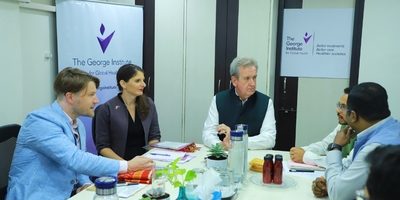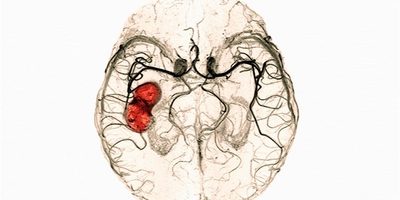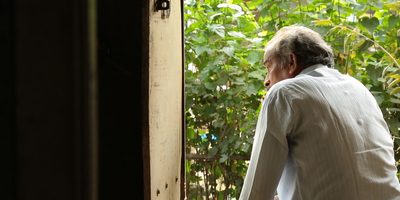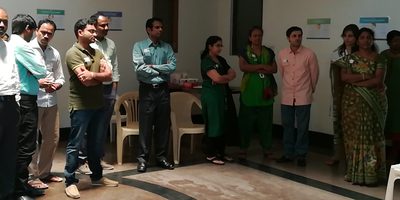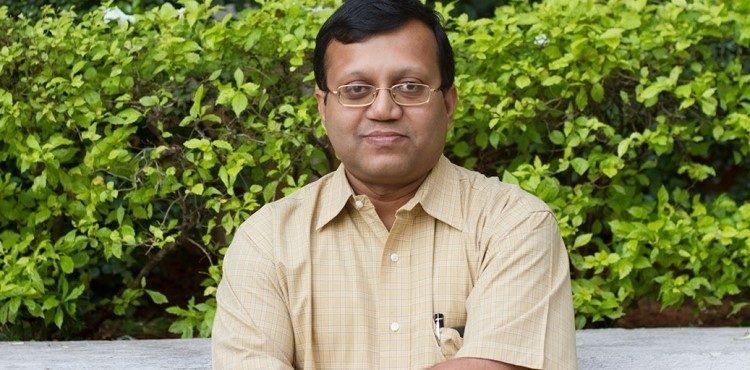
Dr. Maulik speaks about depression and mental health in India
Dr. Pallab Maulik is a leading expert on mental health. He has worked with the World Health Organization, Geneva, on mental health programs and clinically as a psychiatrist in India and Australia.
He is the Deputy Director and Head of Research at The George Institute for Global Health India and a Senior Associate with George Institute for Global Health, University of Oxford.
The World Health day 2017 is a great opportunity and platform for us all to address depression and the stigma associated with it and build a continuous momentum to spread awareness and compassion towards people suffering from depression in India.
In this interview, Dr. Maulik speaks about the pressing need to address depression and mental health in India.
Q1. What are some of the common misconceptions about depression in our society?
Pallab: "People across the world perceive depression in different ways. Some define it as stress while some see it as ‘tension’, while some understand these as symptoms of depression. With lower awareness of depression especially in rural parts of India, some people see depression as a part of life and in more severe cases they feel this is an act of god and they are being punished.”
Q2. Do we have current data on the number of people suffering from Depression in India?
Pallab: " Depression accounts for around 10% of all common mental disorders, according to National Mental Health Survey of 2016."
"It’s estimated that around 150 million people in India suffer from mental disorders which needs to be treated.
"Out of these only 1 in 27 people receive any kind of treatment.”
Q3. How does this data compare to depression in other countries?
Pallab: “If you compare the rate or percentage and not the numbers, it is consistent with other parts of world. Around 10% of women and 5% of men are suffering from major depression across the world and this is consistent with Indian population as well.”
Q4. how prepared is India to tackle mental health illness from a policy and systems perspective?
Pallab: “We have a Mental Health policy that came into force only in 2014. The Mental Health act had not been revised since 1987. The new Mental Healthcare Bill 2016 recently approved on 24th March is a welcome relief but needs to be implemented. The much-awaited Bill is a key legislation that will provide stakeholders a better understanding to understand and tackle the rights of people with mental disorders and empower those suffering from mental disorders."
“The law itself is not enough, we need to ensure that everyone especially the caregivers as well as the police and other stakeholders in society are sensitised to this new legislation that sees a person with mental disorder as someone having same rights as everyone else in society and makes it incumbent upon society to provide those rights.”
“If we look at the work done out of Project Atlas, it is very clear that we are severely under-prepared in term of resources. The latest mental health Atlas data shows we have very few psychiatrists, psychologists or mental health professionals compared to developed nations. The numbers are appalling and inadequate for a large country like ours.”
Q5. Do you feel depression and suicides in India are linked to socio-economic problems?
Pallab: “Depression has been found to be linked to poverty, and suicides as a result of depression then can also be linked to poverty. However, a number of risk factors play a role in causing depression and suicide, and being poor is not the only cause . For example, farmer suicides resulting from social economic problems while true need to be seen in the context of poor identification of any other risk factors and lack of mental health support in rural communities. These are suicides resulting from stress farmers are facing due to their debt, but also reflects how poorly we account for and manage other risk factors and provide for mental health services.
Q6. How things have progressed for Mental Health since when you worked at WHO, Geneva in 2000 and now in 2017?
Pallab: “Since 2000, things have started to progress well. The global mental health programs took roots around that time. There was a major incident that happened in India in 2001, in an area called Erwadi in Tamilnadu around 28 people who visited a religious shrine were found burnt to death. Most were found tied to posts or trees as they were suffering from mental disorders and this place was used to ‘cure such persons from curses’. This resulted in a lot of international embarrassment for the government.
This led to Indian researchers and the Indian government focusing more on mental health and mobilizing resources to bring mental health into the focus of ministers at international and national forums. The movement of global mental health started to take root and attracted researchers from both developed and developing countries and this was facilitated by the efforts of World Health Organization, non-governmental organizations, and various key mental health researchers globally. Funding and support for mental health increased gradually globally, both for developing services and research, and a major focus has been on mental health in low and middle income countries.
"In India, we are just beginning to see some positives in the way the community perceives mental health."
At least in urban settings, people are starting to discuss mental health in different settings. However, there still is a lot of negative perception about seeking professional care for mental illness.
Q7. How is The George Institute for Global Health contributing to improving the Mental Health of people?
Pallab: "We have been working in rural Andhra Pradesh including some Scheduled Tribe Areas in providing an innovative solution to identify and treat conditions such as depression, anxiety and suicide risk. We are empowering lay village health workers and primary care doctors to identify those conditions and provide appropriate treatment based on WHO guidelines within the community."
"We have trained primary health workers across 42 villages and they could identify and treat people in the villages suffering from depression, anxiety or suicide risk using mobile technology based clinical decision support systems."
"In addition, a large campaign to increase mental health awareness and reduce stigma related to mental health was organized in each village that incorporated multi-media approaches. We used brochures, videos of a person with mental illness talk about his experiences and a drama on mental disorders and the need to get treated was enacted educational in villages."
"The results showed that the campaign led to significant increase in knowledge, attitude and behavior related to mental health, and reduction in stigma associated with help seeking. This was evident in more people accessing mental health services when screened positive."
"A significant associated outcome that we observed as part of the programme is that community members have started talking with each other about stressful situations and discuss ways in which each one of them copes with such situations. This was a spontaneous outcome of the intervention and we are trying to understand if this seen across most villages or in just a few."
Q8. Do you have any message for organizations and professionals participating in the #LetsTalk campaign, awareness and activities?
Pallab: "People are often not aware about the symptoms of mental disorders and the need to get treated. I appreciate and urge everyone to use this platform to educate people on symptoms and encourage them to come out and talk."
"Focus on spreading the message for people to first get aware of the symptoms, if someone feels thay are suffering from depression, they need to talk to friends and family and if needed visit mental health professionals."
Q9. What kind of sensitivity or sensibility is required from care givers or friends and family of people who are fighting depression?
Pallab: "Be neutral, don’t be subjective. Do not focus on passing advice or comments. People suffering from depression need to be heard."
"The key is to be emphatic and not be sympathetic. Be patient and hear them out.
Q10. Do you have any message for people suffering from depression in India?
Pallab: "Identify your problem at an early stage and start treatment early. Treatment at early stage is easy, doesn’t need medication if identified early and can be managed through simple counselling techniques and by using coping strategies that can be adapted individually or through help at home"
"People should come out and talk about their problems."



